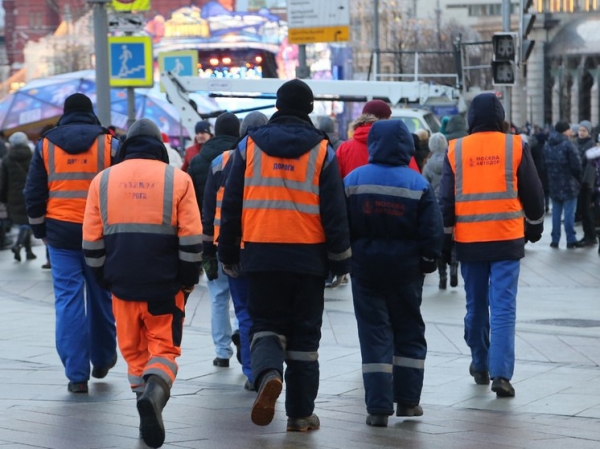
St. Petersburg has officially reversed its previously announced ban on employing migrant workers with labor patents in the taxi and delivery sectors, citing the economic impracticality of such restrictions.
Initially, city authorities proposed barring foreigners from working in these industries, but the decision was reconsidered due to a severe driver shortage. Experts warned that a full ban could have driven service prices in Russia’s northern capital up by as much as 50%, severely limiting accessibility.
No alternatives to migrant labor
According to Alexey Tsivilyov, Chair of the Transport Commission of the City Legislative Assembly, around 34,000 out of 65,000 taxis in St. Petersburg operate illegally — outside of official registries, tax systems, and without proper permits. Rather than tighten restrictions, authorities have opted to introduce more orderly regulations, acknowledging the inefficiency of previous measures.
Migrant couriers are also now allowed to work, though new safety rules have been implemented. These include speed limits for e-scooters and bicycles, along with designated areas where courier movement is restricted.
In the Leningrad Region, the only remaining restriction applies to migrant work in the taxi industry, a ban that has been in place since 2024. In other sectors, foreign workers are permitted. Governor Alexander Drozdenko emphasized that the region cannot function without migrant labor, particularly in construction and logistics.
Krasnodar region delays construction ban for migrants
In the Krasnodar Territory, a similar reconsideration has taken place. Governor Veniamin Kondratyev signed a decree on June 25, 2025, postponing a planned ban on migrant labor in the construction sector until December 20, 2025.
The original proposal aimed to restrict all foreign workers from participating in construction. However, under the revised rules, migrant workers will be allowed to continue working on social housing projects, major investment initiatives, and infrastructure in education, healthcare, culture, sports, and social services.
Where migrants remain restricted
Despite these adjustments, employment bans for migrants still apply in sectors tied to national security, confidential information, and high social responsibility.
Typically, migrants are barred from working in healthcare, especially in roles involving patient care and treatment, as well as in the education sector where teaching and roles involving children are off-limits.
Restrictions also extend to passenger transport, including taxis and buses, private security services, intelligence and defense, strategic industries such as mineral extraction, and alcohol retail.
In certain cases, limitations are also enforced for library and archival work when it involves access to state databases or confidential materials.
Labor shortage reaches critical levels
Russia is currently facing a severe labor shortage. Boris Titov, the Russian President’s Special Representative for Entrepreneurs’ Rights, confirmed that the need for migrant workers is high, and the labor shortfall has reached a critical point.
Titov stressed that boosting productivity alone cannot solve the issue. The situation is worsened by a drop in the number of incoming labor migrants. The decline is linked to a weakening ruble and stricter entry regulations, reducing migrants’ share of the workforce to just 4% — nearly half the 8% recorded in 2013–2014.




